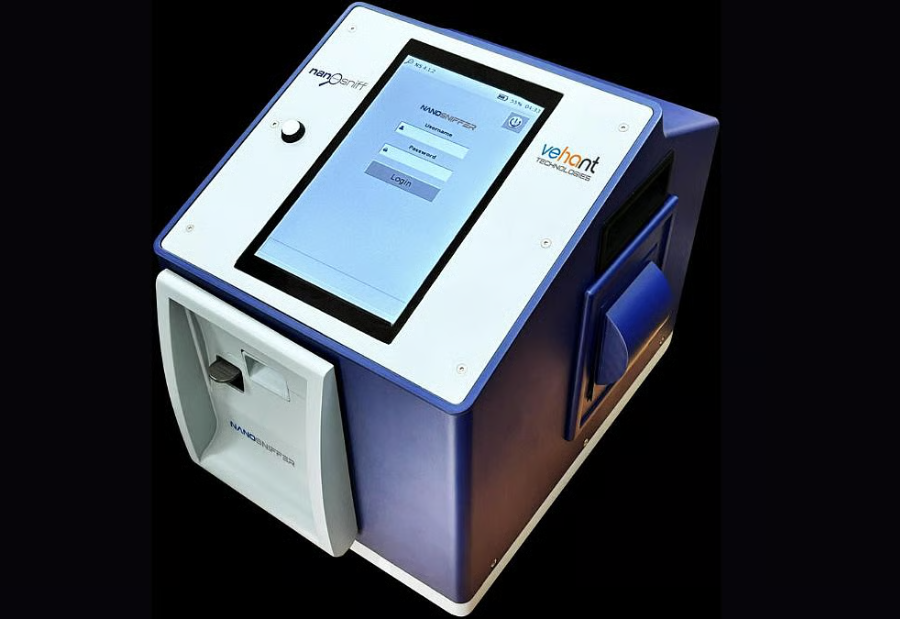India’s aviation security network is set for a significant boost as the Airport Authority of India has finalised a forty crore rupee contract with Vehant Technologies for two hundred thirty two explosive trace detectors. These systems will be deployed at more than sixty airports across the country and maintained under the same agreement.
The ETD NanoSniffer, which earlier received a trial order for twenty units under the AAI Make in India initiative in 2023, has already been operating successfully at seven airports for over two years. The detector uses microsensor technology and can identify trace levels of explosives in less than ten seconds, offering faster and more reliable screening.
Major airports including Chennai, Kolkata, Pune, Varanasi, Srinagar, Jammu, Amritsar, Port Blair and Coimbatore will be part of this rollout. The deployment will cover passenger checkpoints, baggage handling areas, cargo sections and transit zones, making it one of the widest security upgrades in recent years.
Public information indicates that the NanoSniffer is the world’s first microsensor based explosive trace detector. The technology originated at the Indian Institute of Technology Bombay in 2008 and 2009 with funding from the Principal Scientific Adviser’s Office and support from the Ministry of Electronics and Information Technology for a dedicated nanoelectronics laboratory.
NanoSniffer was developed by NanoSniff Technologies, co founded by Dr Nitin S Kale and Kapil Bardeja, along with professors Ramgopal Rao and Soumyo Mukherji. The company operates from the IIT Bombay Research Park and later transferred the technology to Vehant Technologies, which was incubated at an institute in Delhi in 2005.
Vehant Technologies said the order will strengthen India’s in country explosive detection capability and help reduce dependence on imported systems. Dr Nitin S Kale said “Nanosniff has not only developed the ETD system but also its key constituents the MEMS sensor, the underlying science and the detection algorithms. We have worked on this technology with invaluable support from IIT Bombay, IISc Bangalore, DRDO HEMRL Pune, PSA and MeitY.”
Kapil Bardeja added “By providing this indigenous deep tech solution along with lifecycle support, we reaffirm our commitment to enhancing aviation security and advancing the Make in India agenda. This innovation was achieved much before the launch of India’s Semiconductor Mission.”
Also read: Viksit Workforce for a Viksit Bharat
Do Follow: The Mainstream formerly known as CIO News LinkedIn Account | The Mainstream formerly known as CIO News Facebook | The Mainstream formerly known as CIO News Youtube | The Mainstream formerly known as CIO News Twitter
About us:
The Mainstream formerly known as CIO News is a premier platform dedicated to delivering latest news, updates, and insights from the tech industry. With its strong foundation of intellectual property and thought leadership, the platform is well-positioned to stay ahead of the curve and lead conversations about how technology shapes our world. From its early days as CIO News to its rebranding as The Mainstream on November 28, 2024, it has been expanding its global reach, targeting key markets in the Middle East & Africa, ASEAN, the USA, and the UK. The Mainstream is a vision to put technology at the center of every conversation, inspiring professionals and organizations to embrace the future of tech.




